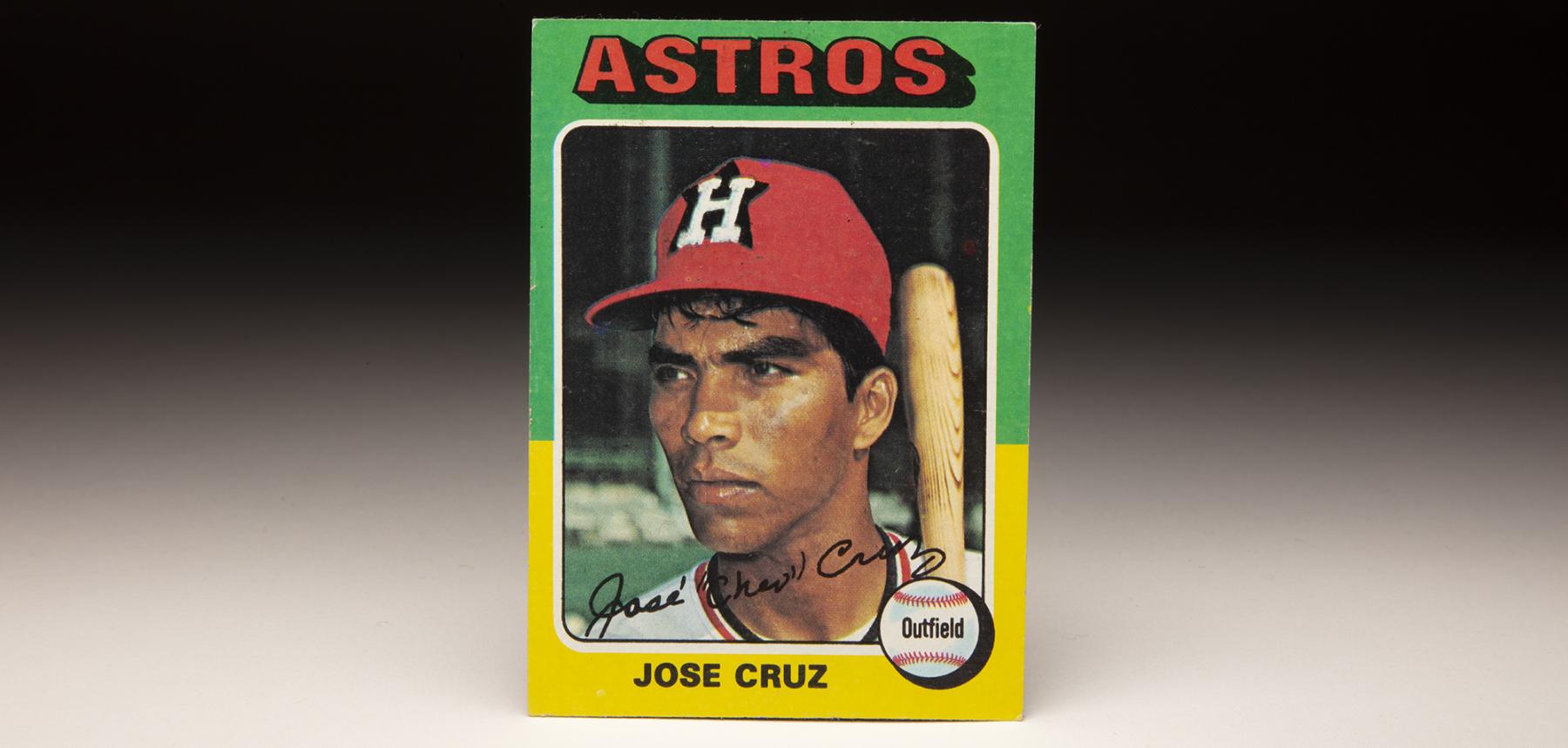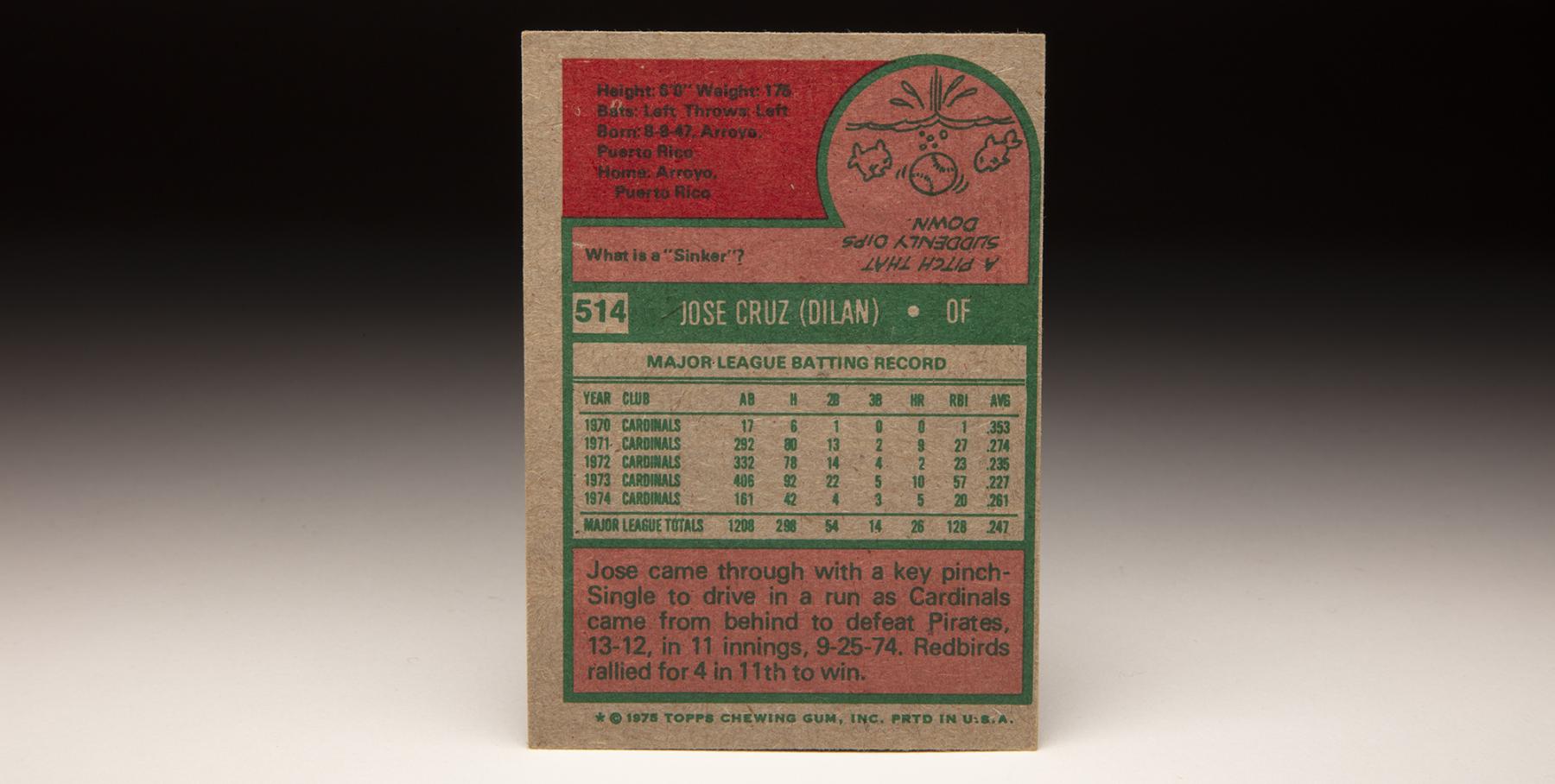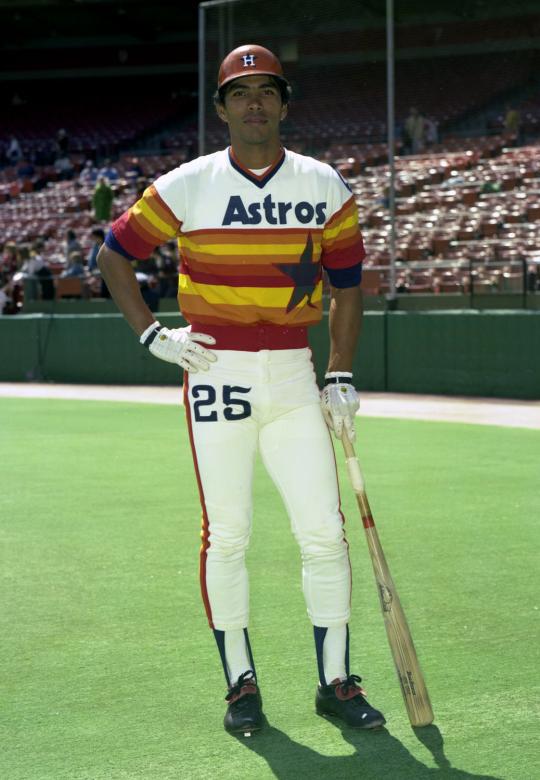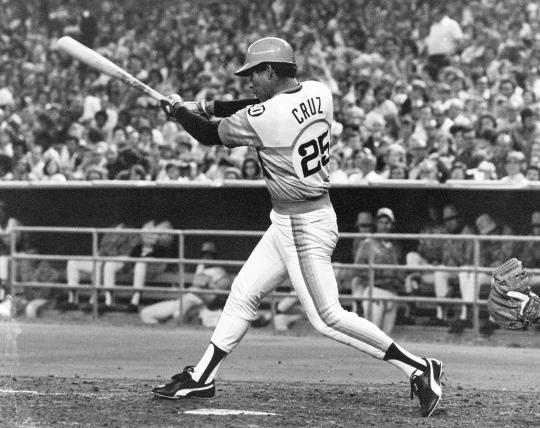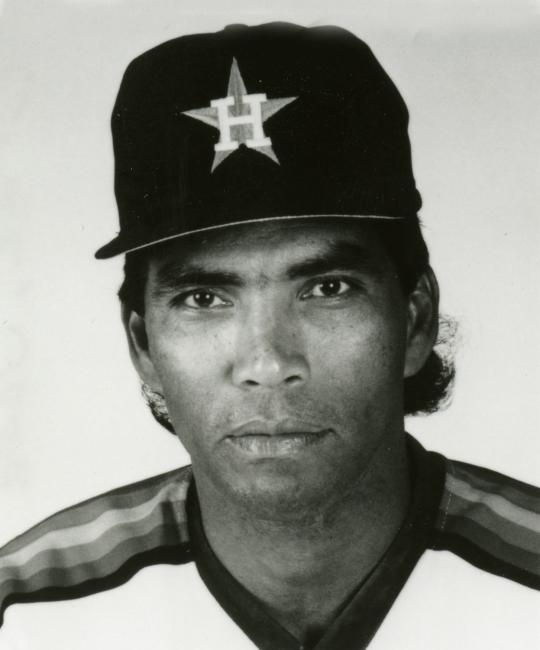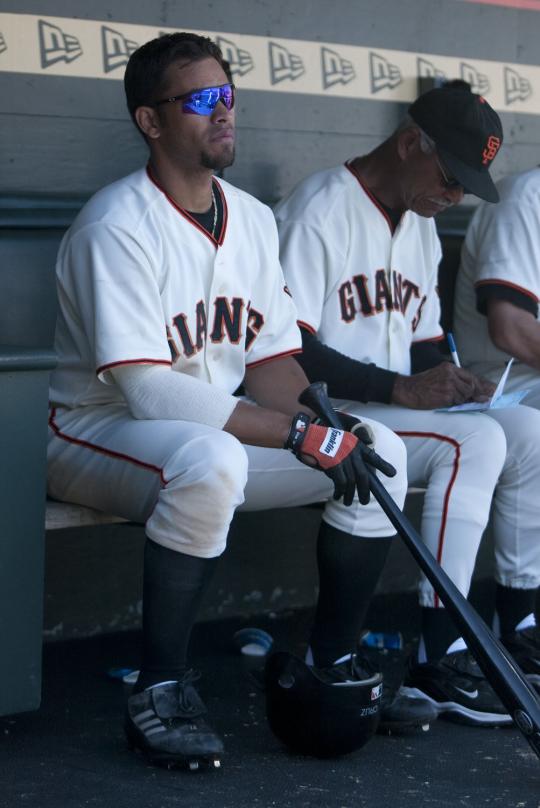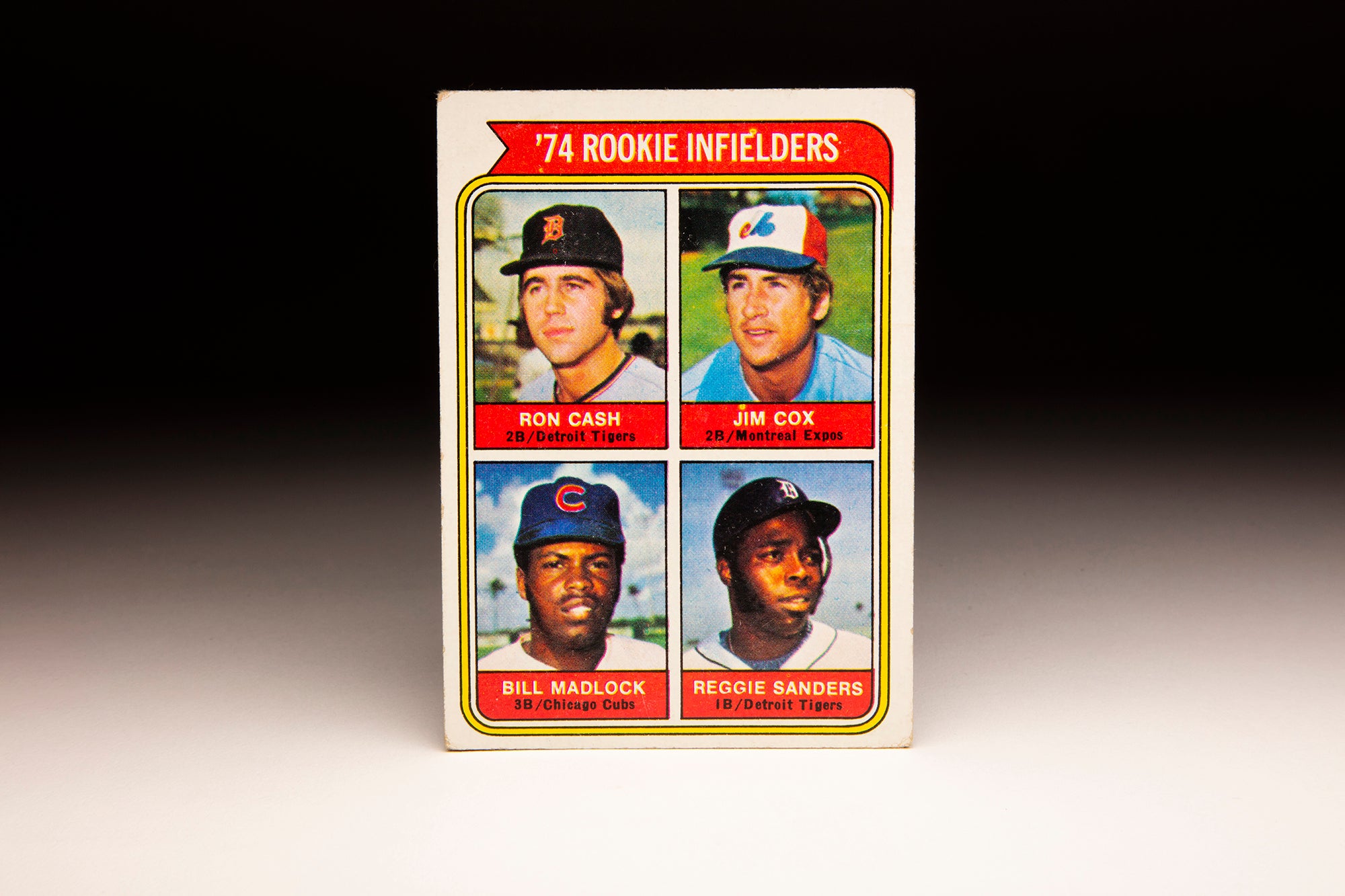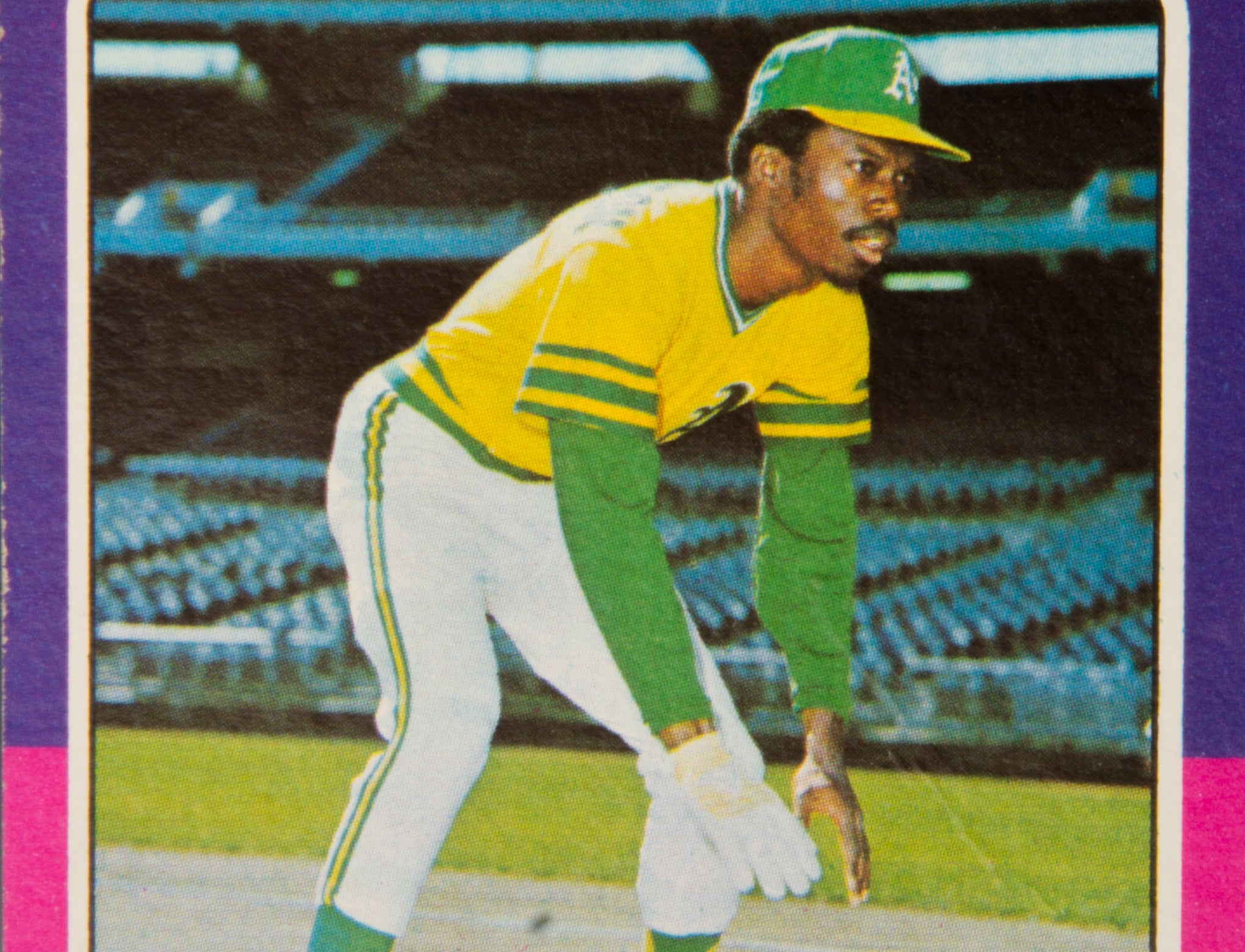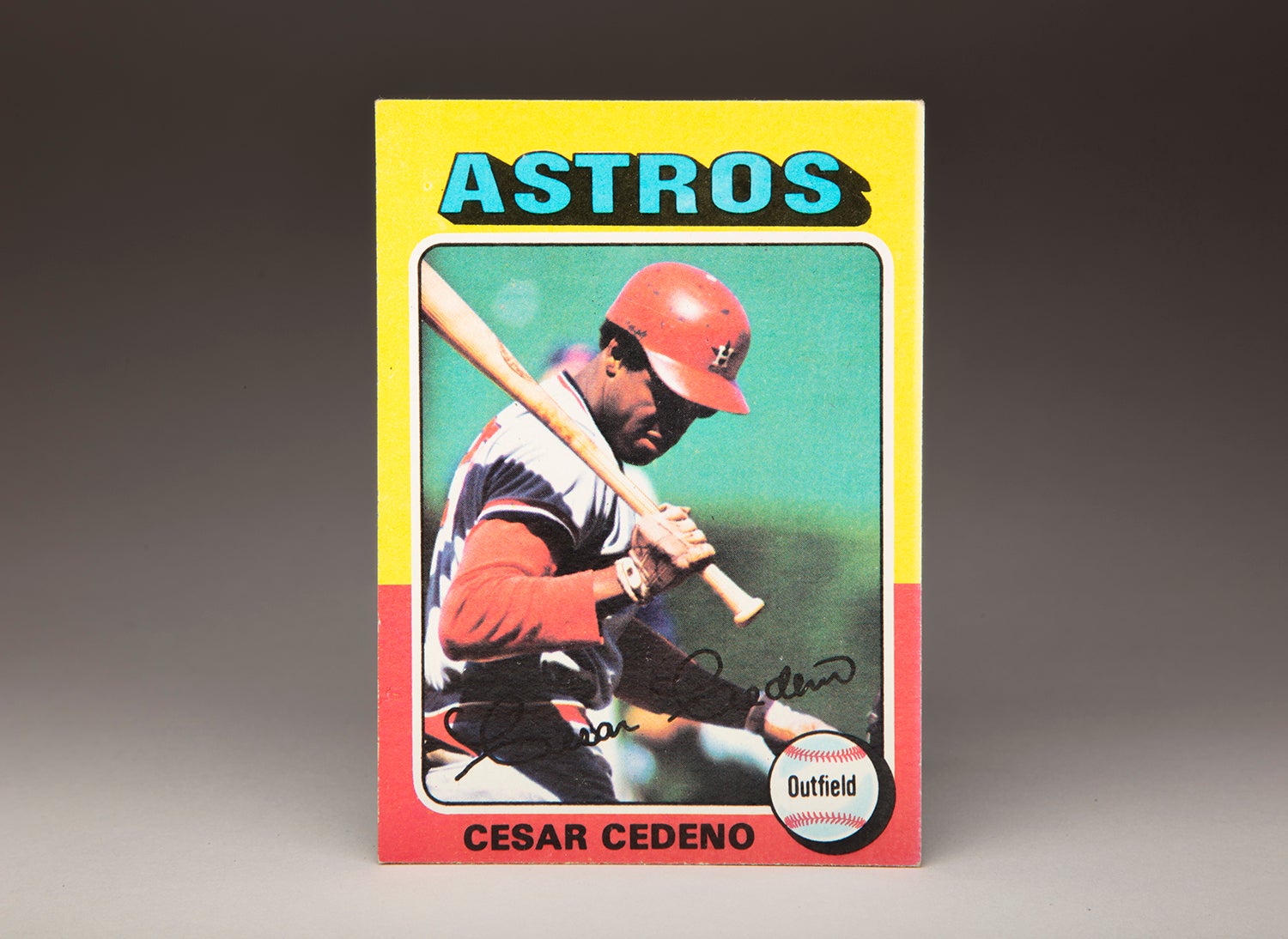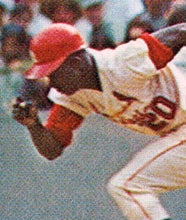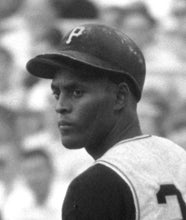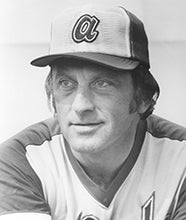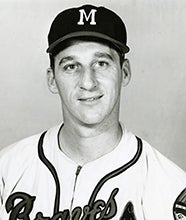- Home
- Our Stories
- #CardCorner: 1975 Topps José Cruz
#CardCorner: 1975 Topps José Cruz
Playing most of his career in the pitcher-friendly Astrodome, José Cruz was never going to make headlines with home runs.
But in every other aspect of the game, Cruz excelled at a level that led headline writers to “discover” him well past what should have been his athletic prime.
Be A Part of Something Greater
There are a few ways our supporters stay involved, from membership and mission support to golf and donor experiences. The greatest moments in baseball history can’t be preserved without your help. Join us today.
Astros Gear
Represent the all-time greats and know your purchase plays a part in preserving baseball history.
Born Aug. 8, 1947, in Arroyo, Puerto Rico, Cruz was one of 13 children and the oldest of three brothers who would eventually play in the big leagues. He signed with the Cardinals in the fall of 1966 and began a steady climb through St. Louis’ system, earning a late-season promotion to the big leagues in 1970 after hitting .300 with 21 homers and 90 RBI for Double-A Arkansas that season.
After beginning the 1971 season with Triple-A Tulsa – hitting .327 in 67 games for manager Warren Spahn’s team – Cruz was recalled to St. Louis in late June and inserted into the Cardinals’ lineup as the team’s center fielder. He finished the season with a .274 batting average, nine homers and 46 runs scored in 83 games – posting a .377 on-base percentage on the strength of 49 walks.
“Cruz has all the tools to achieve star status,” Cardinals general manager Bing Devine told Lindsay-Schaub News Service.
Cruz made the sports pages of newspapers all over the country in November of 1971 in an Associated Press blurb that quoted Cruz as saying “He’s too good to copy” when describing fellow Puerto Rican Roberto Clemente, who had won the World Series Most Valuable Player Award with the Pirates a month before.
Cruz, however, had talent all his own.
After slumping to a .235 average in 1972, Cruz appeared poised for a breakout season in 1973. In a Spring Training game against the Mets on March 23, Cruz started in center field and was flanked by his brothers Tommy and Hector, who signed with the Cardinals in 1969 and 1970, respectively.
But despite being the Cardinals’ Opening Day center fielder, José struggled to a .227 average in 132 games. After serving as the team’s fourth outfielder and pinch hitter in 1974 – coming to the plate just 182 times over 107 games – Cruz was shipped to Houston in exchange for a reported $25,000 on Oct. 24, 1974. With Lou Brock in left, Reggie Smith and right and top prospect Bake McBride on the way, the Cardinals simply had no room for Cruz in their outfield.
The Astros made Cruz their starting right fielder, and “Cheo” – Cruz’s longtime nickname – got off to a fast start in 1975 with three RBI on Opening Day against future Hall of Famer Phil Niekro. His 1975 Topps card depicted him in a Houston uniform – though the airbrushing of the logo and the unmistakable look of the collar clearly indicated that Cruz was wearing a Cardinals uniform in the photo.
Cruz hit .257 with 49 RBI in 120 games that season, then found his footing in 1976 with a .303 batting average, 61 RBI and 28 steals.
By 1977, Cruz was an emerging star after hitting .299 with 17 homers, 87 RBI and 69 walks to go with 44 stolen bases. He earned the team’s Most Valuable Player Award, but few outside of Houston seemed to notice.
Now ensconced as the Astros' cleanup hitter, Cruz hit .315 with 10 homers, 83 RBI and 37 steals in 1978. He followed that up with a .289 average, nine homers, 72 RBI and 36 steals in 1979.
Then in 1980, the Astros won their first National League West title as Cruz again had a typical “Cruz season” – hitting .302 with 11 homers, 91 RBI and 36 steals while again winning team MVP honors and finishing third in the NL MVP voting, the first time he had collected even one MVP vote.
Cruz hit .400 with four RBI and eight walks in the five-game NLCS vs. the Phillies, but lost the a chance to play on the game’s biggest stage when the Astros were defeated in one of the most hotly contested series in LCS history.
Cruz was named to his first All-Star Game that year, but – missing the spotlight again – was the only healthy NL reserve who didn’t get the chance to play.
“I was happy at first,” Cruz told the San Bernadino Sun. “I had made the team, but the people in my country wanted to see me play. I was the only guy on the bench.
“I may not get the recognition, but I’m happy.”
Cruz led the Astros back to the postseason in 1981, hitting .300 in Houston’s NLDS loss to the Dodgers. He endured a down season in 1982 while hitting .275 with 68 RBI, but regrouped at age 35 in 1983. He led the NL with 189 hits while chasing the batting crown all summer, finishing with a career-best .318 mark – five points short of champion Bill Madlock of the Pirates.
Cruz continued to play winter ball in Puerto Rico well into his 30s, and the extra action seemed to take no toll on his body. He also maintained a reputation as one of the game’s best outfielders, moving to left field in 1979 and leading all NL left fielders in putouts each year from 1980-84.
Cruz’s 1984 season was almost a duplicate of 1983 as he hit .312 with 12 homers, 95 RBI and 187 hits – winning a Silver Slugger Award for the second straight year. At age 37 in 1985, Cruz hit .300 with 79 RBI – earning his second All-Star Game selection.
“If he played in New York or L.A. or Chicago, one of the big media cities, he’d be a superstar in everybody’s mind,” Astros teammate Joe Sambito told Knight-Ridder Newspapers. “He’s the best hitter I ever played with.”
Cruz got one more opportunity to play in the postseason when the Astros won the 1986 NL West title. He turned 39 that summer, but still hit .278 with 10 homers and 72 RBI. But Houston fell to the Mets in the NLCS in another series considered one the best ever, denying Cruz his dream of playing in the World Series.
“We need to win so everybody can see what kind of player I am,” Cruz told Knight-Ridder Newspapers, “and what kind of team we have here.”
But the Astros finished in third place in their division in 1987, and Cruz played in just 19 of Houston’s final 75 games that season.
The Astros did not offer him a contract for 1988, and Cruz signed on with the Yankees.
“I wasn’t really surprised, but I was a little bit shocked,” Cruz told the Baltimore Sun in the spring of 1988. “I had been there a long time.”
After just 38 games with New York, Cruz was given his release on July 22, 1988, ending his career.
Cruz finished with a .284 batting average, 1,036 runs scored, 1,077 RBI, 165 home runs and 317 stolen bases over 19 seasons. He was also hit by a pitch just seven times in his career – never more than once a season – a record for any player with at least 8,800 career plate appearances.
His career WAR of 54.4 ranks in the Top 250 all-time. And his family bloodlines remained strong, as his son José Cruz Jr. enjoyed a 12-season career in the big leagues.
But his 2,353 career games without appearing in a World Series – the 15th-most of anyone not to play in the Fall Classic – may be the most likely reason that José Cruz was not more appreciated in his own time.
Cheo simply did his job without fanfare.
“When he’s finished playing,” teammate Dickie Thon told the San Bernadino Sun, “they’re going to recognize a lot of the things he’s done.”
Craig Muder is the director of communications for the National Baseball Hall of Fame and Museum

